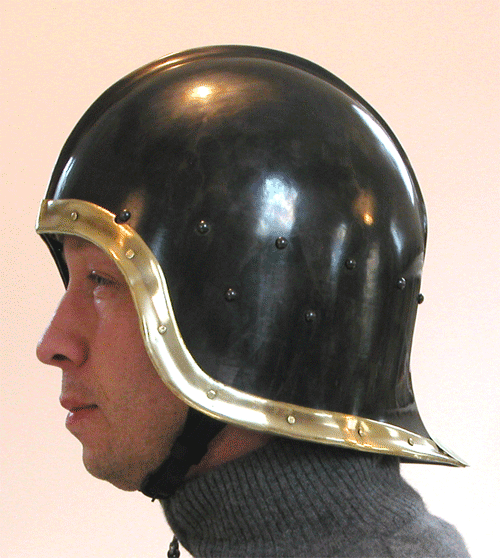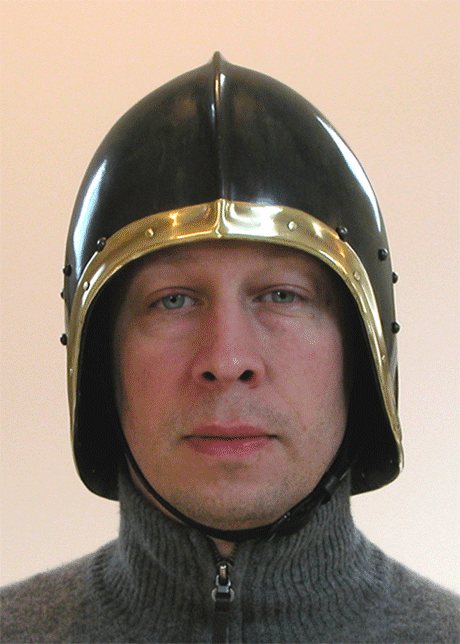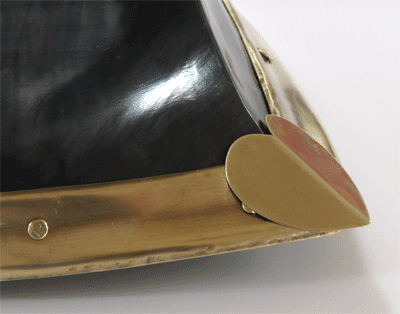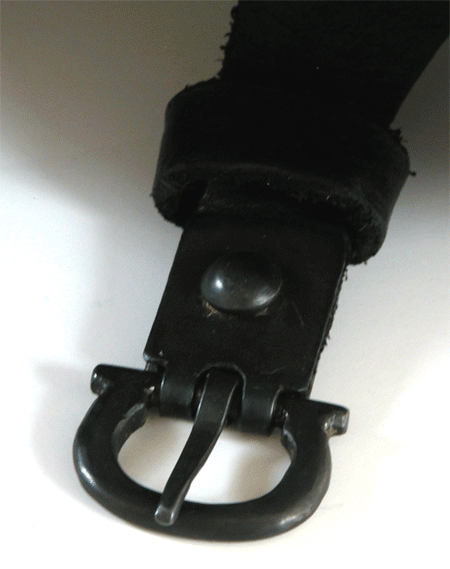Posts: 5,981 Location: Birmingham, Alabama
Thu 19 Mar, 2009 7:04 am
Ha! Yep, that's it. The visor was hiding the potential, and making it a bit shallower and back-swept also helped refine the form. I'm glad you like it, Patrick, because I thought of you several times during production. With the bluing and brass, and especially the
shield-shaped plume holder, this has a distinct law enforcement look to it--like an ancestor of the English police helmet. :D
Many light sallets are shown in Austrian depictions of civil authorities--arresting Jesus, etc. They're worn with a surprising variety of kit, from full plate to almost nothing, so I it has crossed my mind that I could assemble a reasonable kit by either doing some of the work myself or drafting a hungry student. I think the piece would look fine with as little as a breast (blued, of course :D ). I'd really like to make a mail standard with brass edging, as the standard/light sallet combination seems to have been popular by 1500 (anybody want to buy my bevor?). My XVIIIb is a good match, especially if I decide to add a repoussé brass disc to the pommel. A short axe/streithammer would be a good choice, too. For the clothes, red seems to have been very popular and common. The only thing holding me back is the question of what I'd do with the stuff. I made a nice display stand for my wife's Roman kit, and could do the same thing for a medieval kit of sallet, breast and doublet.
I need to make some scabbards first, though....







